Turkish forces, allied militants facing stiff Kurdish resistance: Observatory
Turkish military forces and allied militants from the so-called Free Syrian Army (FSA) are facing stiff resistance by Kurds in northern Syria, says a monitoring group.
The Britain-based Syrian Observatory for Human Rights said on Friday, “There is heavy fighting between the SDF (the so-called Syrian Democratic Forces, which is an anti-Damascus alliance of predominantly Kurdish militants) and the Turks on different fronts, mostly from (the towns of) Tal Abyad to Ras al-Ayn.”
The observatory said the Turkish operation involves airstrikes as well as heavy artillery and rocket fire.
“The SDF are using tunnels, trenches and berms” in their defense operations, the war monitor said.
It noted that four civilians lost their lives in Tal Abyad when an airstrike hit the car in which they were fleeing, while another three were shot dead by snipers around the border town.

That brings the civilian death toll to 17 on the Syrian side, while seven have also been killed in Turkey.
According to the observatory, 41 SDF fighters have also been killed. Turkey has reported the death of only one soldier.
More than 70,000 people displaced in northeast Syria: UN
The United Nations has expressed concern over Turkey’s military operation in northern Syria, stating that tens of thousands of people have already fled the escalating violence and been displaced in the wake of the ground offensive.
“Over the last 48 hours, tens of thousands of people have been fleeing their homes as a result of the escalation of conflict in northern Syria, and hundreds of thousands more are at grave risk amid active hostilities as cold weather sets in,” UN High Commissioner for Refugees, Filippo Grandi, said in the Swiss city of Geneva on Friday.

“I have echoed the secretary general's (Antonio Guterres) call for respect for international humanitarian law by all parties. It is also important that aid agencies, including UNHCR (the United Nations High Commissioner for Refugees), have access to civilians in need to help avert a deepening humanitarian crisis.”
The World Food Programme (WFP) has said more than 70,000 people have already fled the escalating violence since Wednesday.
The mass displacement occurred in al-Hasakah and al-Raqqah provinces, said WFP Spokesman Herve Verhoosel in Geneva.
On Wednesday, Turkish military forces and Ankara-backed FSA militants launched a long-threatened cross-border invasion of northeast Syria in a declared attempt to push Kurdish militants from the so-called People's Protection Units (YPG) away from border areas.
Ankara views the US-backed YPG as a terrorist organization tied to the homegrown Kurdistan Workers' Party (PKK), which has been seeking an autonomous Kurdish region in Turkey since 1984.
The YPG constitutes the backbone of the SDF.
Turkish Defense Minister Hulusi Akar said on Friday that a total of 342 terrorists have been “neutralized” since the start of the incursion.
“Our aim is to end the existence of terrorists, especially Daesh and YPG, east of the Euphrates River and establish a peace corridor to assure our Syrian brethren' return to their own lands, homes,” Akar said.
342 #terrorists '#neutralized' in #Turkey’s #OperationPeaceSpring in N #Syria @tcsavunma @TSKGnkur https://t.co/1nGJTlI14b pic.twitter.com/CHK9F5xRtW
— ANADOLU AGENCY (ENG) (@anadoluagency) October 11, 2019
Ankara says one of its goals in the cross-border operation is to form a “safe zone” to which at least one million refugees from the Arab country can return, after the years-long presence of refugees in Turkey became an increasingly political liability.
The Turkish military has launched two cross-border incursions in northern Syria, namely “Euphrates Shield” in August 2016 and “Olive Branch” in January 2018, with the declared aim of eradicating Kurdish militants and Daesh Takfiri terrorists near Turkey’s borders.
Car bomb kills three people in Syria’s Kurdish city of Qamishli
Separately, at least three civilians lost their lives and nine more sustained injuries on Friday, when an explosives-laden vehicle detonated in a busy neighborhood of the Kurdish city of Qamishli in northeastern Syria.

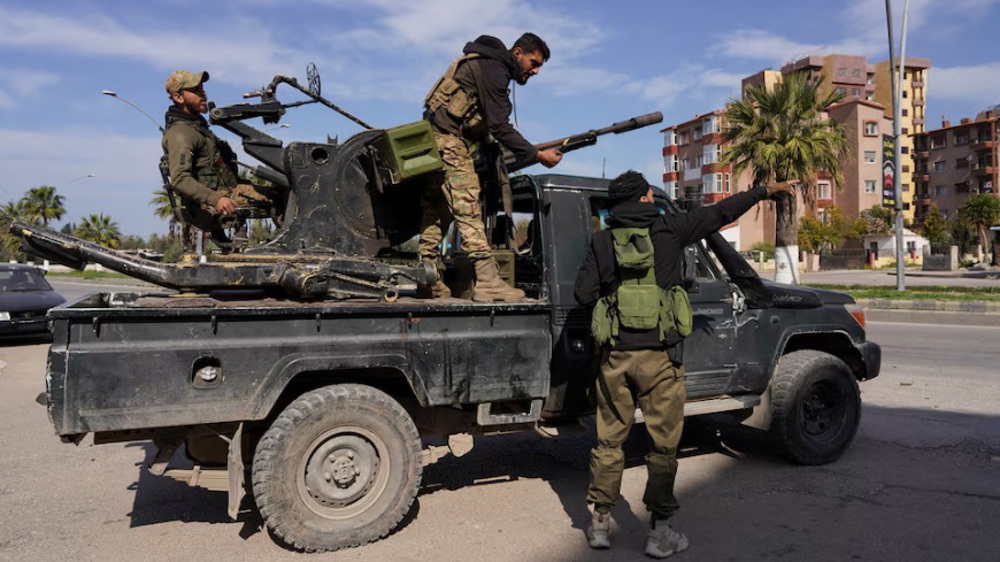
HTS gunmen, allied militants kill over dozen Alawites in Syria’s Homs
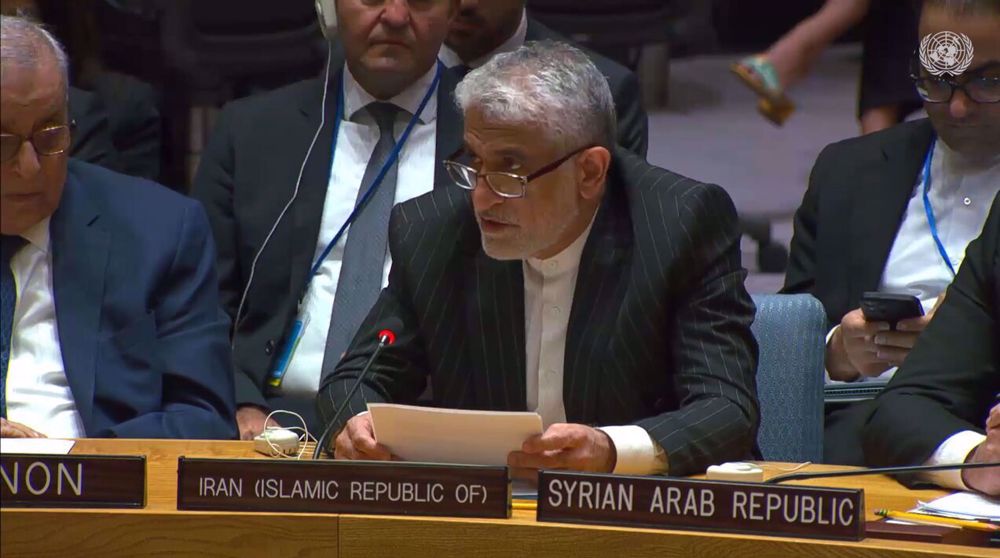
Iran backs sovereign, stable Syria free of terrorism, UN envoy says
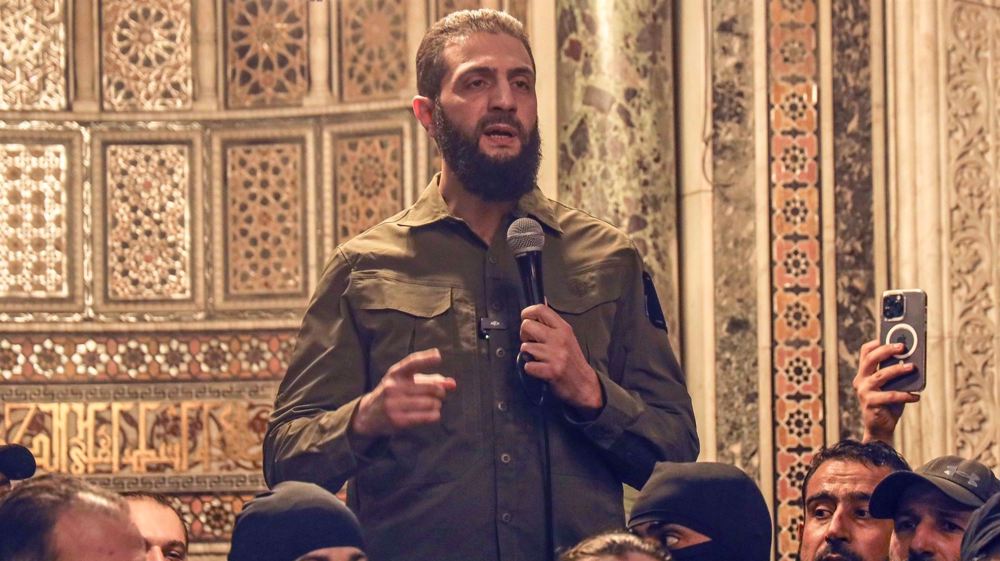
Syria’s HTS seeks normalization with Israel, Jolani writes to Trump
Putin orders surprise 3-day Ukraine war ceasefire in May
The path to Palestinian liberation from occupation begins with Mahmoud Abbas’ ouster
Pezeshkian visits Baku as Iran, Azerbaijan look to strengthen ties
India, Pakistan exchange fire across Kashmir border for fourth night
‘Systematic genocide’: Gaza media office says Israel deliberately killing women, children
We do not carry weapons, but bandages and hope to save lives: Gaza doctor
Death toll from Iran's southern port blast rises to 46 as over 1,000 injured
VIDEO | Press TV's news headlines







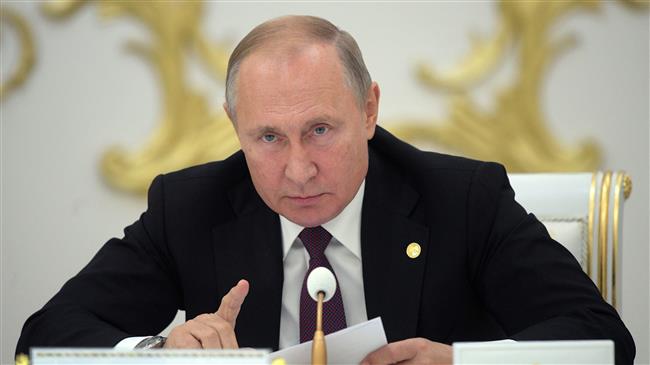
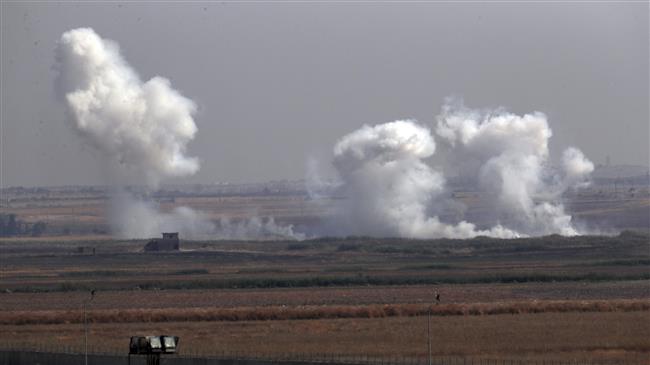
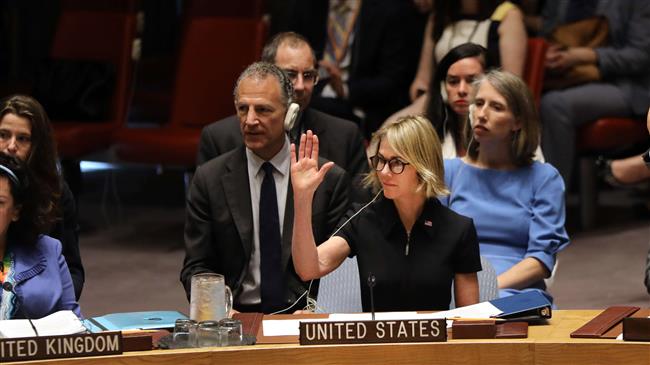
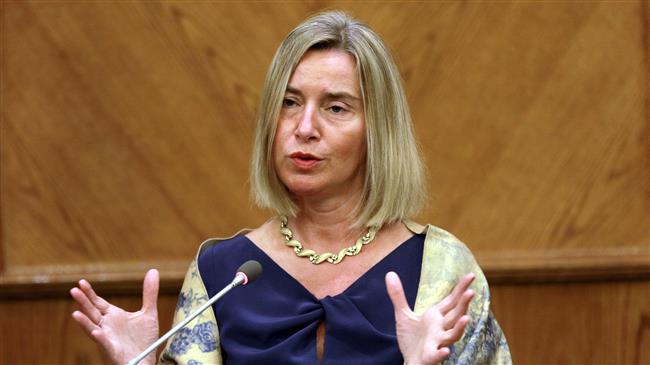
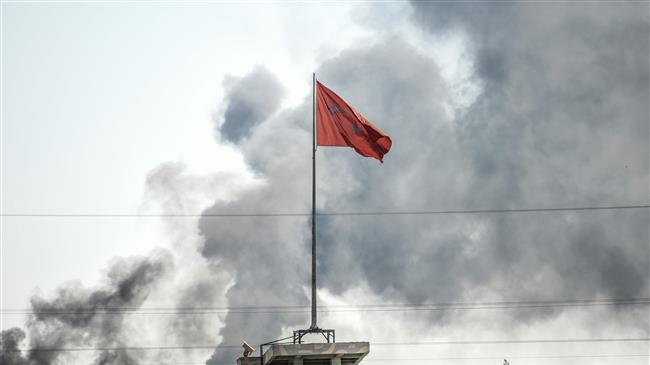

 This makes it easy to access the Press TV website
This makes it easy to access the Press TV website